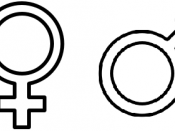What is being proposed throughout the literature is that feminist therapy had implications from the origin theory all the way to the ambiguous practice and goals. In a broader sense, modern psychotherapy was created by white, middle class, heterosexual men in their own representation. Ever since, psychotherapy has emphasized white male society's characterization of healthy mental states and has ignored the needs of the diverse populations it agreed on to serve. Feminist therapy came about to protest against that movement, however, feminist therapy was build up by white, middle class, heterosexual women (Brown, 1994), and it was not until the late 1980's that developers of feminist therapy acknowledged that they had disregarded women of color as if they were not existing. The fact that numerous women of color preferred to call themselves "womanists" was verification to their feelings for feminism, feminist theory, and feminist therapy (Williams, 1999). Feminist therapy has its ancestry oddly enough in the philosophy of the women's movement of the 1960's.
Consequently, it has no consensual theory of personality, giving reasons for disagreement as to whether feminist therapy is a philosophical orientation or a theory. For the most part, the aim of this paper is to investigate possible drawbacks, implications, and criticisms that preoccupy the introduction and practice of feminist therapy, for some accounts by comparing and contrasting Feminist Therapy with other numerous therapies, without ignoring advantages and contributions for counseling psychology.
The origin and central concept in feminist therapy was the psychological oppression of women and the restrictions imposed as a result of the sociopolitical status by which women were highly downgraded. Moreover, the socialization of women inescapably affected their identity development, self-concept, functions and ambitions, and emotional comfort. Society reinforced disadvantaged, compliant, and selfless behaviors in women (Faludi, 1991).
Worell and Remer (1992) indicated the...


